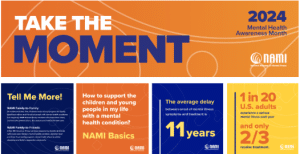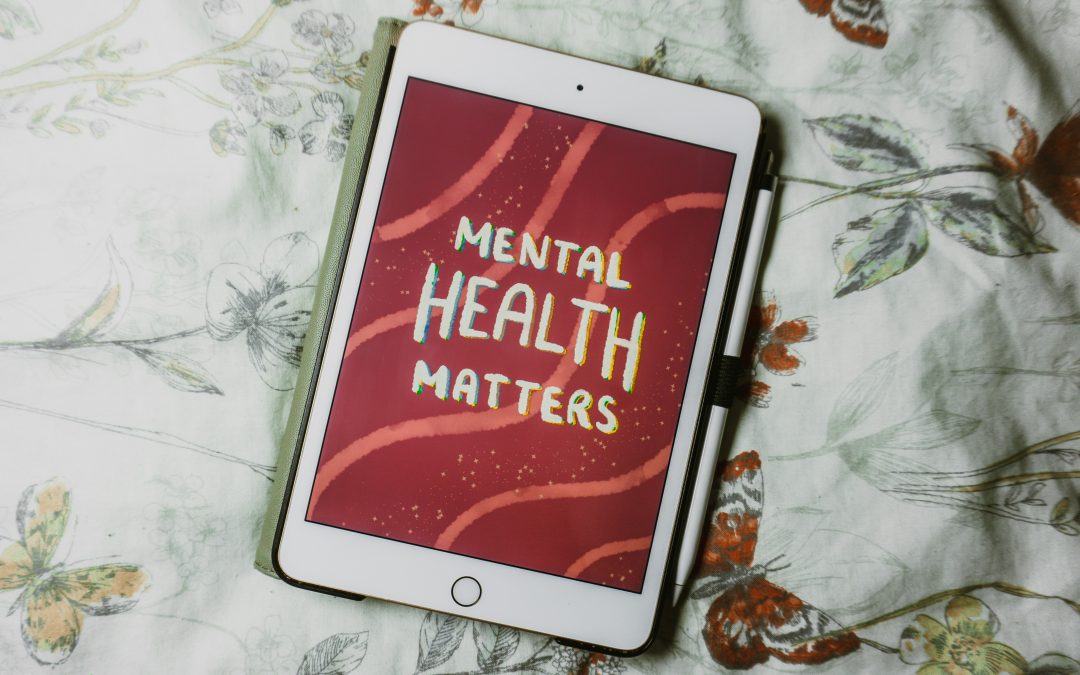From the National Alliance of Mental Health: May is Mental Health Awareness Month. Since its inception in 1949, Mental Health Awareness Month has been a cornerstone of addressing the challenges faced by millions of Americans living with mental health conditions. Throughout the month, NAMI actively participates in this national movement, focused on:
- A dedication to eradicating stigma;
- Extending support;
- Fostering public education;
- Advocating for policies aimed at the well-being of individuals and families
Interestingly, the founder of the namesake was Clifford W. Beers, “Advocate of the Insane,” one of five siblings who all suffered debilitating mental health issues. His autobiography, “A Mind That Found Itself” is still in print and free to read: https://www.gutenberg.org/ebooks/11962.
Despite his health issues, Beers served the mentally ill community through his accomplishments throughout his lifetime:
- In 1908 he founded the Connecticut Society for Mental Hygiene, now Mental Health Connecticut;
- In 1909 he founded the National Committee for Mental Hygiene, renamed the National Mental Health Association, now the Mental Health Alliance;
- In 1913, he founded the Clifford Beers Clinic in New Haven, Connecticut, (one of the first outpatient mental health clinics in the United States)
Additional Resources
This year, the National Alliance of Mental Health observes Mental Health Awareness Month with its Take The Moment campaign. Their website states:
“We encourage you to join us in fostering open dialogues, cultivating empathy and understanding. We also urge you to share our resources to support individuals and families on their journey towards mental wellness. Through “Take the Moment,” we shine a spotlight on NAMI’s array of signature programs including: NAMI Basics, NAMI Family-to-Family, NAMI Family & Friends, NAMI Homefront, NAMI In Our Own Voice, NAMI Peer-to-Peer, NAMI Support Groups and our invaluable NAMI HelpLine, which is a free, nationwide peer-support service providing information, resource referrals and support to people living with a mental health condition, their family members and caregivers, mental health providers and the public.
This campaign also champions the importance of destigmatizing mental health by normalizing the practice of taking moments to prioritize mental health care without guilt or shame.”

They even provide a digital toolkit and urge users to share thoughtful and sobering graphics to help enlighten others.
Similarly, the National Institute of Mental Health (NIH) offers a digital toolkit with a plethora of shareable graphics on all types of mental illnesses: https://www.nimh.nih.gov/get-involved/digital-toolkit-for-mental-health-awareness-month.
Both of these organizations also sponsor walkathon-type programs, particularly in urban centers.
Get Involved on a Personal Level
Self-Care: Practicing self-care is absolutely essential for trauma survivors. To bring about consistency, start small, and slowly build your self-care regimen.
- Walk for thirty minutes; not only will this help manage your weight as well as your chance of diabetes, but it naturally reduces stress, anxiety, and irritability, and allows you to focus better and concentrate;
- Be social a few times per week; anything that allows you to be with like-minded individuals;
- Yoga and meditation have both been proven to reduce stress, foster creativity, and promote mindfulness;
- Make time to sleep; it is vital for mental and physical recovery;
- Build and foster stronger connections with family and friends;
- Practice gratitude: 1) acknowledge what you are grateful for 2) express gratitude toward those who have helped you 3) adopt a new behavior as a result of the experience
Remember, even if making time for specific self-care actions proves elusive, pick up the phone and call someone you know who has shared their mental wellness journey, be empathetic – and see how they are doing.
The NAMI toolkit provides a few glimpses into recent data:
1 in 5 U.S. adults experience mental illness each year, and only half of them receive treatment;
1 in 20 U.S. adults experiences a serious mental illness each year and only two-thirds receive treatment;
1 in 6 U.S. youth experiences a mental health condition each year, and only half of them receive treatment;
50% of all lifetime mental illnesses begin by age 14, and 75% by age 24
The Foundation also provides multiple trauma-informed programs you can join, including:
- Daily Recovery Support
- Healing Book Club
- Weekly Creative Group
- Trauma-informed Yoga
- Peer Support Chat
- Partner Support
- Daily Encouraging Text
- Pride Support
Drop a comment and let the Foundation know how you plan to support Mental Health Awareness Month.

Paul Michael Marinello serves as Chief Staff Writer and Blog Manager for CPTSD Foundation. Previous to this role he managed North American Corporate Communications at MSL, a top ten public relations firm where he also served on the board for Diversity & Inclusion for a staff of 80,000. Paul Michael grew up in New York and attended SUNY Farmingdale before starting a ten-year career at Columbia University. He also served as Secretary and Records Management Officer for the Millwood Fire District, appointed annually by an elected board of fire commissioners from 2008 – 2017.




